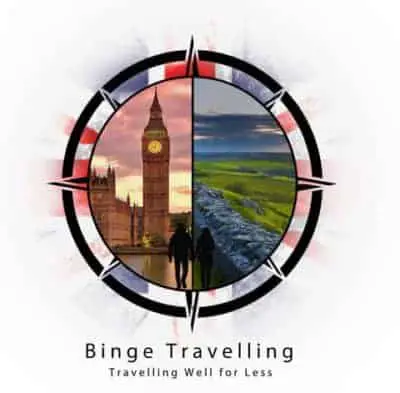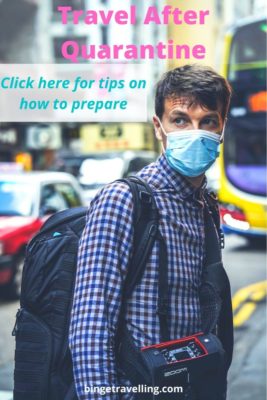The ability to travel again so freely does seem so far away right now in the midst of the Coronavirus pandemic, but we are optimistic that we’ll get back to traveling soon. We would expect there will be a ‘new normal’ in general as extra precautions for traveling will be put in place once the pandemic is over. So we’d like to share with you some tips on how to prepare for future travel.
- Choose and research a destination
- Research accommodation choices
- Research how to get around
- Know your tour operator policies
- Must-purchase items on the packing list
- Research and know what your travel insurance covers
- Before traveling, ensure you know the current travel safety information about your destination
- Think contactless
As countries around the world start to ease lockdown, we move towards a ‘new normal’. We hope that the worst of this devastating virus is over and people can start getting back to their lives.
Travel is a passion for so many people but also a great opportunity to recharge, relax, experience different cultures, and educate yourself. Whatever your reason, it can have such a positive impact on mental well-being.
The possibility of second and third waves from Coronavirus as countries ease their lockdown restrictions are expected and likely. We do not know when this nightmare will be over, but the economy around the world is slowly restarting and travel becomes a huge part of this rebuilding the world’s economy.
1. Choose and Research a Destination
Bear in mind, each country will be easing restrictions at different times and at a different rate. The restrictions they have at any given time will vary from country to country.
The busyness of a city can also influence your decision. If you’re likely to be in close proximity to a lot of people it might be worth looking into areas that are less populated. Be flexible in choosing where you would like to go taking into account the country’s individual pandemic situation.
Look into booking flights well in advance of when you plan to go. As there is uncertainty around travel, it’s likely that flights could be cheap to start with to encourage people to start traveling again.
It’s important to note, however the cancelation policy. We cannot predict if further waves of the virus may occur and could possibly cause a second lockdown. Therefore, make sure you know your refund policy if in the event your holiday will be canceled.
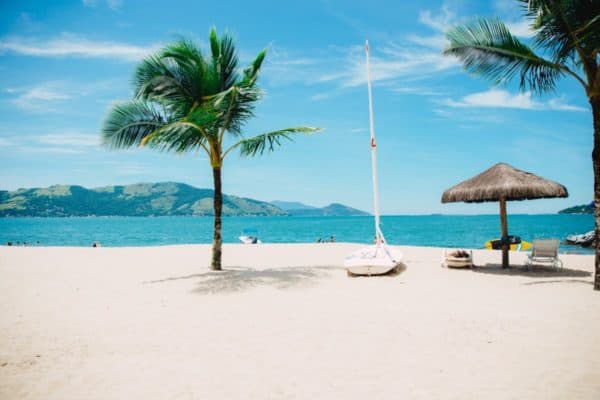
2. Research Accommodation Choices
With everyone being extra cautious about hygiene, it may become more common for people to choose self-catering apartments, choosing to stay in and cook, rather than booking hotels and eating out every night.
There are so many options here, such as Airbnb, self serviced apartments etc.

3. Research How to Get Around
Crowded buses, trains, and metros may be a thing of the past if more and more people start avoiding public transport and opting for more ‘social distancing’ travel. Before, while it was a bit annoying and inconvenient on these busy routes but now is unnerving and possibly dangerous, people will look to use alternatives to public transport.
Therefore, look into rental cars and how easy it is to get around by driving. Make a note of what attractions you want to go see and ensure there are suitable parking options as well and how much it costs.
Alternatively, getting private tours with a driver can be another alternative. Although, this is an obviously more expensive way to travel it may give you more peace of mind, not to mention it’s also a different type of experience. We had a private tour when we went on our honeymoon to Sri Lanka and it was great to simply enjoy the holiday without worrying about how to get to places as well as planning what to do every day. Bliss!
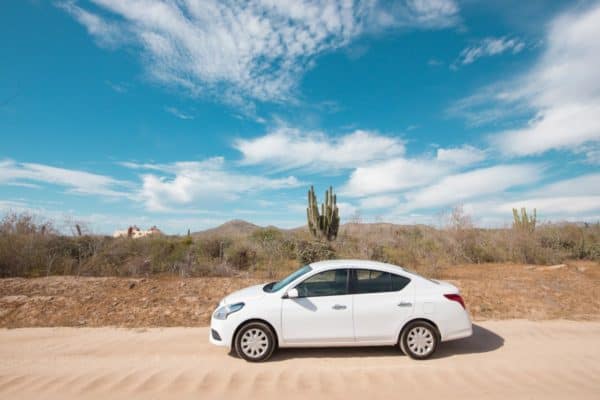
4. Know your Tour Operator Policies
If you choose to book a holiday, it’s important now more than ever to check the fine print. As mentioned above with the uncertainty of second and third waves of the virus a true possibility, it’s impossible to predict how fast things may change by the time you’re due to travel.
Therefore, make sure you check the cancelation policy and if it’s possible to get a full refund.

5. Must-Purchase Items on the Packing List
We predict travel safety is going to become a huge selling point in general, not just for the travel industry. With that in mind, definite items that you should have on your packing list are as follows:
- Hand santizers
- Antibacterial hand wipes
- Face masks
- Gloves
Of course you don’t need to panic and walk around wearing face masks and gloves all day every day, but judge the situation you’re in and take the necessary precautions. Take on the government advice as well. The situation is changing all the time which means the travel advice will also frequently change as more information becomes available.
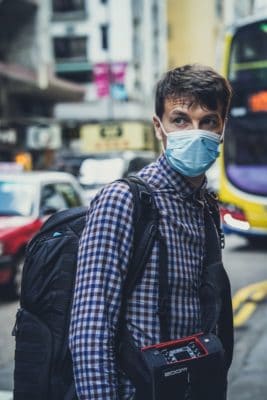
6. Research and Know what your Travel Insurance Covers
Travel insurance is always recommended. We would normally just head online and use a comparison site to get the best deal on travel insurance. We wouldn’t normally look into the specifics. Does this sound familiar? However, now more than ever, it’s become more important to know what your insurance actually covers.
In this pandemic, many people have lost a lot of money on trips they’ve booked. It’s not worth taking the risk. You don’t know what’s around the corner!

7. Before Traveling, Ensure you Know the Current Travel Safety Information About Your Destination
A great place to start to find out about the situation in the country you plan to travel to is the World Health Organization (WHO) website. It has a wealth of resources, information, and can answer the most commonly asked questions.
We’d also recommend looking at the UK’s gov.uk website. This has up to date information about travel advice for other countries. It’s a great resource to check before booking a holiday and traveling, not just in a pandemic! It has all sorts of general information, including safety, security, local laws and customs, health, and money.

8. Think Contactless
With people being more aware of reducing touching anything when outside your home, there are some things you need to think about for travel. For example, taking cash on holiday.
Exchanging money with people in shops means you’ll be in closer contact with other people’s touch. Look into seeing if you can pay easily with a card. Minimizing contact with other people will be on everyone’s priority list!
Of course, this may not be possible everywhere, but even if you travel and get by with a mix of using cash and card, this will still reduce your frequency of touch.

Be Optimistic, We Will Travel Again Soon…
One thing for certain is that how we all travel is going to change. We’ve written an article on the future of travel, where we go into detail about how we think travel is going to change following this pandemic.
Planning your trip is one of the most exciting things to do. You have time now to really thoroughly look into doing this, so go ahead. The dream is not over! The pandemic won’t be forever, it is just a temporary suspension.
And things will not just return to how it was. The travel industry will seriously look into putting travel safety first. Some countries depend on tourism as a revenue source – they will want to welcome tourists again soon when it’s safe to do so.
Understandably, people will be cautious about traveling again, and travel anxiety will definitely be on the rise, however, we are optimistic that with new precautions put in place for travel safety combined with everyone taking responsibility and being sensible about the way they travel, together we can get back to exploring the world!
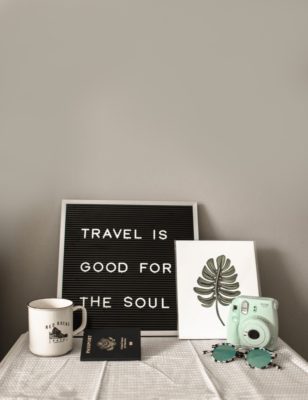
If you’re interested in reading about some other topics we’ve recently written about, here are some of our picks that we hope you will enjoy.
